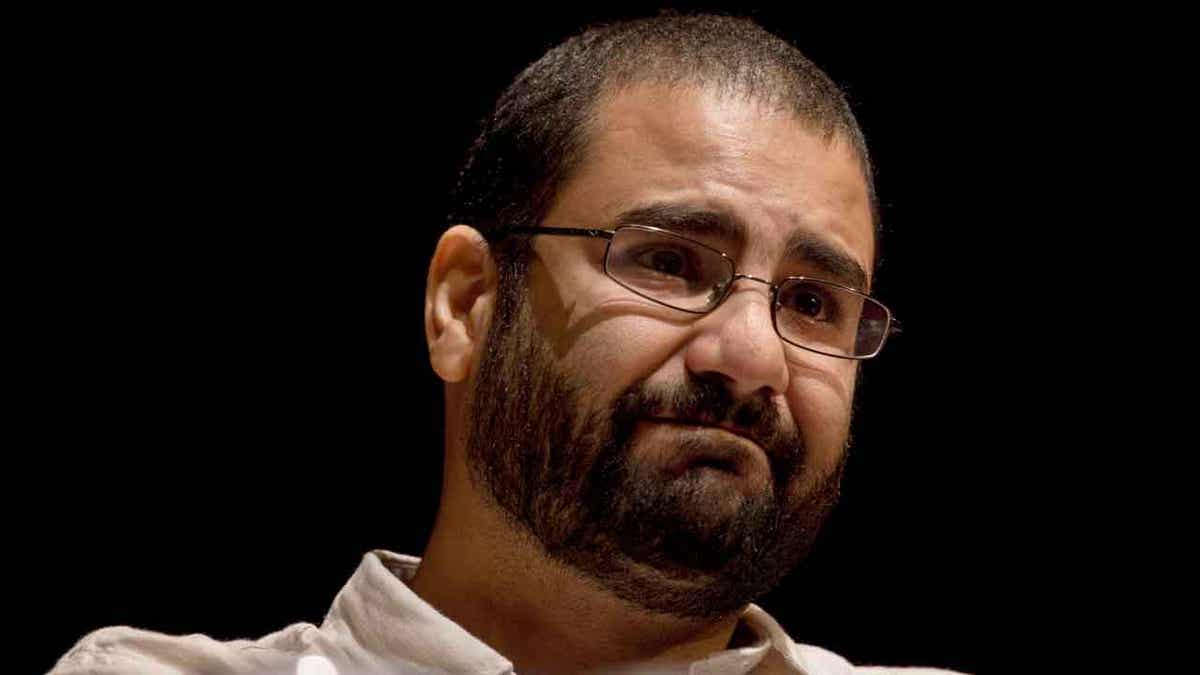Fox News Flash top headlines for November 2
Fox News Flash top headlines are here. Check out what's clicking on Foxnews.com.
A group of winners of the Nobel Prize for Literature urged world leaders on Wednesday to raise human rights issues as they visit Egypt for the COP27 climate change conference.
In a letter sent to various heads of state, the group of 15 Nobel Laureates asked the visiting diplomats and politicians to "devote part of your agenda to the many thousands of political prisoners held in Egypt’s prisons." In particular, they asked for the case of prominent imprisoned activist Alaa Abdel-Fattah to be raised, as he escalates his hunger strike on the conference's first day.
Abdel-Fattah’s family said he started a full hunger strike on Tuesday and plans to start denying himself water as of Nov. 6, the first day of the international climate conference. His family has expressed fears that without water he will die before the conference concludes Nov. 18.
EGYPT'S MOST PROMINENT IMPRISONED ACTIVIST HAS BEGUN A 'FULL HUNGER STRIKE'
Abdel-Fattah, an outspoken dissident and a U.K. citizen, rose to prominence with the 2011 pro-democracy uprisings that swept the Middle East and in Egypt toppled long-time President Hosni Mubarak. The 40-year-old activist spent most of the past decade behind bars and his detention has become a symbol of Egypt’s return to autocratic rule.
As an international spotlight focuses on Egypt ahead of the climate summit in the Red Sea town of Sharm el-Sheikh, Abdel-Fattah’s family has been lobbying for his release. His sister, Sanaa Seif, has been staging a sit-in at the headquarters of Britain’s Foreign Ministry to push the U.K. to take action in his case.
The government of President Abdel Fattah el-Sissi, a U.S. ally with deep economic ties to European countries, has been relentlessly silencing dissenters and clamping down on independent organizations for years with arrests and restrictions. Many of the top activists involved in the 2011 uprising have fled the country or are now in prison, most under a draconian law passed in 2013 that effectively banned all street protests. Human Rights Watch estimates there are more than 60,000 political prisoners behind bars.
The organizers said the letter has been sent to Secretary-General of the United Nations Antonio Guterres, U.S. President Joe Biden and U.S. Climate Envoy John Kerry, U.K. Prime Minister Rishi Sunak, King Charles III, President of France Emmanuel Macron and Chancellor of Germany Olaf Scholz in addition to other international leaders.

Egypt's leading pro-democracy activist Alaa Abdel-Fattah speaks during a conference at the American University in Cairo, Egypt, Sept. 22, 2014. The family of imprisoned activist Abdel-Fattah said that he will go on a full hunger strike starting on Nov. 2, 2022. Nobel Prize winners are urging world leaders to speak of human rights issues at the climate change conference in Egypt. (AP Photo/Nariman El-Mofty, File)
MORE THAN TWO DOZEN 2,500-YEAR-OLD SARCOPHAGI DISCOVERED AT ANCIENT SITE IN EGYPT
Max Blain, a spokesman for British Prime Minister Rishi Sunak said Wednesday that the U.K. government is "raising his case at the highest levels of the Egyptian government" and "working hard to secure Alaa Abdel-Fattah’s release." Blain said he could not say whether Sunak will raise the case when he attends COP27.
An Egyptian government media officer did not immediately respond to a request for comment on the letter's distribution.
It was signed by Nobel Prize for Literature winners Svetlana Alexievich, J. M. Coetzee, Annie Ernaux, Louise Glück, Abdulrazak Gurnah, Kazuo Ishiguro, Elfriede Jelinek, Mario Vargas Llosa, Patrick Modiano, Herta Müller, Orhan Pamuk, Roger Penrose, George Smith, Wole Soyinka and Olga Tokarczuk.
Abdel-Fattah is also a writer. The letter campaign was organized by two publishers who have distributed his writings, Fitzcarraldo Editions and Seven Stories Press.
CLICK HERE TO GET THE FOX NEWS APP
His most recent collection of essays, some of them written from inside a prison cell, is entitled "You Have Not Yet Been Defeated." It was published in April, and addresses issues of global injustice as societies evolve. The letter quotes one of his writings on climate change.
"The crisis is not one of awareness, but of surrender to the inevitability of inequality. If the only thing that unites us is the threat, then everyone will move to defend their interests. But if we collect around a hope in a better future, a future where we put an end to all forms of inequality, this global awareness will be transformed into positive energy," the letter reads.

